
4th anniversary of JCPOA
The editorial of Hamdeli focuses on why Iran should make changes to its regional policies and missile programs to keep the Europeans committed to the JCPOA.
On July 14, 2015, the nuclear deal (JCPOA) was signed between Iran and P5+1 after tough, intensive talks. On July 20, 2015, it was ratified by the United Nations via Resolution 2231, in order to consider it as an international accord. Despite all efforts by the UN Security Council to make the JCPOA an international accord, four years after signing it there are still obstacles and challenges regarding its implementation.
In fact, after four years, the JCPOA is in a coma and apparently there is no hope for resuscitating it. Washington has pulled out of the JCPOA while putting pressure on and threatening Iran. Trump is seeking to discredit the JCPOA, wherever he can. Europe intends to preserve the JPCOA; yet, it is harming the nuclear deal by using Tehran’s ballistic missile program as an excuse. Meanwhile, Tehran tries to resort to any possible ways to keep the JCPOA alive.
Under these circumstances, preserving multilateral cooperation and remaining committed to them seems the most reasonable and appropriate way for dealing with the JCPOA. As Europe is serious in preserving the JCPOA, it seems that Tehran’s cooperation with Europe seems the best possible way for preserving the deal. However, evidences show that Europeans expect more cooperation from Iran to preserve the JCPOA.
Even though European signatories of the JCPOA verify Iran’s commitment to it, they are in agreement with America over Iran’s regional policies and missile program, because of their destabilizing tendencies. It means that Iran’s missile program and regional policies in Damascus, Baghdad, Beirut, and Adan can move Europe closer to America and push it to exit the JCPOA.
Obviously, making changes in its missile program and regional policies can play a key role in keeping the JCPOA alive and keeping Europe by Iran’s side. Otherwise, Iran might lose Europe as well.
Hamdeli – July 17
Iranian society faces a complex future
The editorial of Arman Emrooz criticizes Iranian officials for trying to create false hopes, as Iranian society faces continuous crises, and it struggles with terrible economic conditions.
It has been said repeatedly that Iran is facing crises due to U.S. sanctions and it must plan to overcome them. If we put ourselves in place of the people, particularly the young, then the question that will be raised is how and why have we created these crises for the people.
Finding a job for many youth and university graduates has become difficult, if not impossible. It means that the biggest issue of the young is not political, but finding a job. The age of marriage is constantly going up. Under these circumstances, it is quite understandable why many youth are thinking of emigrating. On the other hand, the status of science and knowledge, particularly human sciences, is deteriorating.
What makes the situation worse is that the country is constantly dealing with multiple crises. Whether the tensions in the region will escalate to the point of a confrontation or not, it has created serious concerns in society. Before that, the concern was whether Donald Trump would pull out of the nuclear deal or not. Moreover, prior to that, the crisis was if the nuclear negotiations would come to fruition or not.
Therefore, if we look at these issues and compare Iran with its neighboring countries, it seems that resolving the issues is not that easy for Iran, as the country moves from one crisis to another. As such, how can the young generation be hopeful and optimistic towards the future?
Economically, the society is in a dire situation and making people hopeful for the future is not the solution. How can we expect a society that has been constantly facing tough situations, to be concerned only with traveling and vacations?
Some officials and authorities talk of hope for the future, but society, and particularly the young, is right; Iran has failed in creating welfare and comfort for them.
Arman Emrooz – July 16
Rouhani still busy with his “hope therapy”
The editorial of Hamdeli focuses on the failure of Rouhani’s government and its turn to populism instead of resolving Iran’s issues.
When Mahmoud Ahmadinejad was Iran’s president for two terms, his approach towards political and social affairs in Iran was considered as populist. This was true, as he was trying to polarize society into camps: “us” and “them”, take politics to the streets, governmentalize the economy, and squander money.
With the formation of a coalition by the “moderates” and the “reformists” in Iran to take control of the government from the “hardliners”, Hassan Rouhani managed to become the head of the executive branch, hoping that no such things would be repeated again.
In fact, with Hassan Rouhani’s victory in the 2013 presidential election, everyone believed that his government’s social base and those supporting his slogan of “Hope and Prudence” would not allow him to continue his populist approach. However, this didn’t come true, and Hassan Rouhani, like Ahmadinejad, took a populist approach.
Currently, Rouhani’s populism mixes “speech therapy” and “hope therapy.” By analyzing Rouhani’s recent speech in the North Khorasan province shows that he is still reiterating populism or “hope therapy” and isn’t going to stop it. Relying on wrong statistics, a pretense of peace in Iran’s political sphere, concealing facts regarding people’s lives, creating false hopes, tying all problems to US sanctions, resorting to conspiracy theories – all show how Rouhani continues to depend on populism.
As it has become obvious that Rouhani’s government is inefficient in creating economic openings, it doesn’t seem that adopting such an approach will be effective. Actually, Rouhani’s reliance on “hope therapy” will not help the existing conditions; it will just make his government face the same accusations that were made against Ahmadinejad.
Hamdeli – July 15
Opportunity for diplomacy
The editorial of Arman Emrooz explains why Iran should take France’s “freeze-for-freeze” plan seriously, in order to find a peaceful solution in order to resolve the current tensions with the United States and Europe.
It is for the experts to assess a plan like “freeze-for-freeze” technically and economically, suggested by France. According to this plan, Iran would stop increasing its nuclear activity and the U.S. would maintain its sanctions at the current level to allow time for dialogue to resume.
Nevertheless, if accepting and implementing this plan helps create dialogue and understanding between Iran and America, it must be welcomed, as this can provide a way for a fundamental solution to Iran’s nuclear issue. As for the new plan of the French President Emmanuel Macron, it must be urged that there is not enough information to say whether it is to Iran’s advantage or not.
Nevertheless, Iran is suffering from sanctions that have targeted the ordinary lives of Iranian people. Issues and crises that we are witnessing in the economy are due to the U.S. sanctions. From the transportation industry to problems in providing foods and drugs in Iran are all related to the sanctions.
Under such circumstances, Iran must use any opportunity to pass through this tough situation. The official strategy is not clear in this regard yet; nevertheless, preventing tensions and moving towards a peaceful solution is necessary for the country. What the country needs today is peaceful management of its nuclear issues and the differences with America and Europe. The continuation of sanctions is to Iran’s loss, and the price Europe and America are paying is almost nothing compared to what is inflicted on Iran.
With the continuation of tensions, Iran’s power will decrease, and lowering the bargaining power of Iranian politicians. The U.S. sanctions have targeted the industries that are important for daily life, and when a country’s economy weakens, it naturally shows more flexibility.
Before the economic conditions reach that level, officials must take advantage of the situation by taking steps towards a diplomatic solution to resolve Iran’s outstanding issues.
Arman Emrooz – July 14

France warns of danger of war between Iran and America
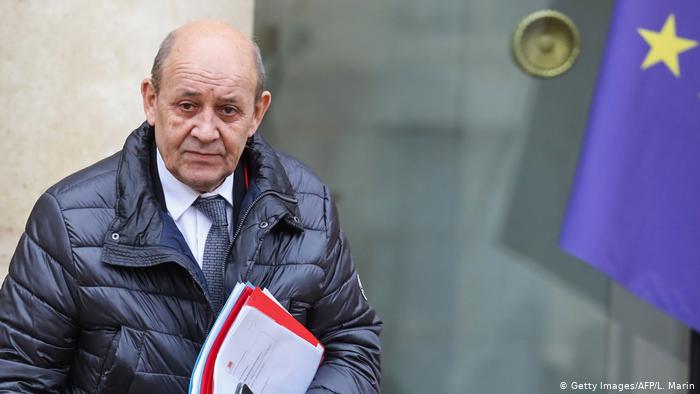
The French Foreign Minister Jean-Yves Le Drian criticized Iran for breaching the nuclear deal (JCPOA) and increasing its level of uranium enrichment after the U.S. pulled out of the deal, calling it a “bad reaction to a bad decision”. He said it is a serious situation and with escalating tensions, something tragic might happen.
Jean-Yves Le Drian added the fact that Iran’s decision to reduce some of its obligations in the nuclear deal is seriously concerning. He emphasized that European governments strongly criticized America for pulling out of the JCPOA, and they do not consider it as a step towards negotiations or preventing Iran from achieving nuclear weapons.
The French foreign minister stressed that Iran and America will not gain anything in this way.
This is not the first time that the French foreign minister has warned Iran in this regard. In reaction to Iran’s breaching of the JCPOA, he had said before that Iran would not gain anything by this measure.
Meanwhile, as tensions between Iran and America escalate, leaders of Britain, France, and Germany issued a statement calling for talks and ending tensions over Iran’s nuclear deal.
So far, Germany and Japan have tried to mediate between Iran and America, but their meetings with Iranian officials have been to no avail. Now Iraq has expressed willingness to mediate between the two countries. Federica Mogherini, Representative of the European Union for Foreign Affairs, has backed Iraq’s efforts in mediating between Iran and America.
Deutche Welle
Radio Farda
Pompeo curbs Zarif’s movements in New York; calling sanctions successful
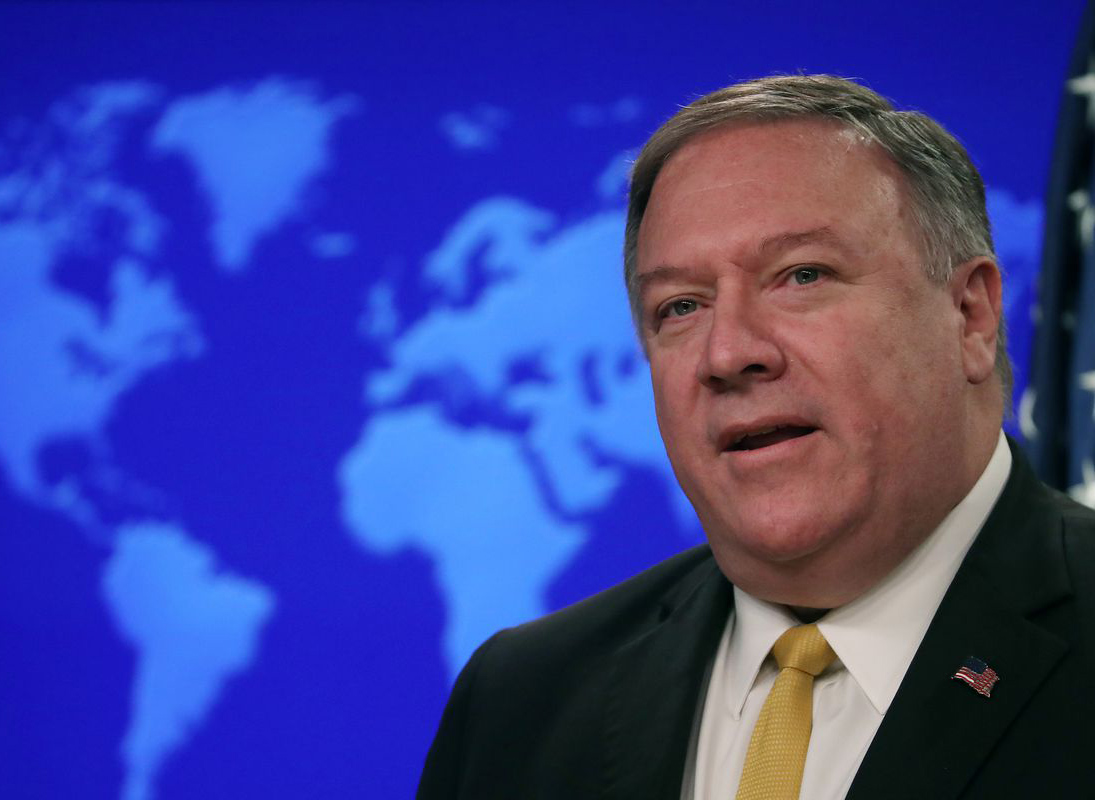
The U.S. Secretary of State Mike Pompeo, in his talk with the Washington Post, announced his agreement with granting a visa to his Iranian counterpart Mohammad Javad Zarif for his trip to the United States. He added that, however, he has imposed severe restrictions on Zarif’s movements in New York.
Pompeo said that Zarif and his entourage would be allowed to travel to the UN headquarters and to Iran’s mission six blocks away, as well as to the residence of Iran’s UN ambassador nearby. He urged that “U.S. diplomats don’t roam around Tehran, so we don’t see any reason for Iranian diplomats to roam freely around New York city, either”.
Later in a tweet, Zarif admitted he was allowed to set foot only in three buildings while in the United States.
Later, the U. S. administration, in a letter, informed the Iranian mission to the United Nations of new restrictions imposed on Iranian diplomats and their families in New York. According to the letter, the Islamic Republic’s diplomats and their families are only allowed to travel between the United Nations, the Iranian U.N. mission, the Iranian U.N. Ambassador’s residence, and John F. Kennedy airport.
Meanwhile, Mike Pompeo, in a radio interview, said the U.S. sanctions against Iran have been “effective”, adding that Iran is “the most destabilizing force in the Middle East.”
The U.S. Secretary of State defended the U.S. extensive pressures on Tehran, criticizing other signatories of the nuclear deal for remaining in the deal and creating obstacles for restrictions against Tehran.
Trump’s administration pulled out of the nuclear deal last year, turning to its “maximum pressure campaign” in order to change Iran’s behavior.
Mike Pompeo has proposed 12 demands for reaching a comprehensive deal with Iran. The demands include Tehran halting its missile and nuclear programs as well as its cyber threats and its support to paramilitary forces in the region.
YJC
BBC Persian
Khamenei reacts to the seizure of an Iranian oil tanker: ‘Such evil won’t be left unanswered’
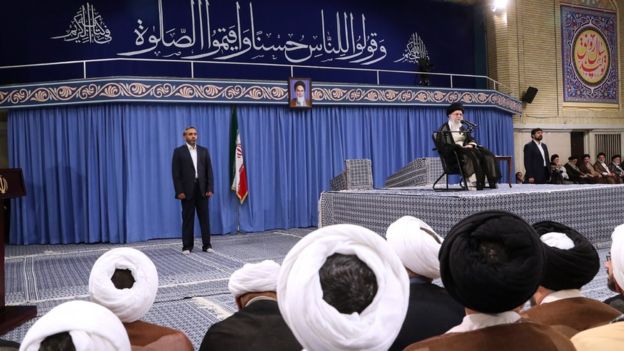
Iran`s Supreme Leader Ali Khamenei reacted to the U.K. seizure of an Iranian oil tanker in Gibraltar, saying “the Islamic Republic and those who believe in it won’t leave such an evil act unanswered.”
In a meeting with Friday prayer leaders, Khamenei blasted the British government: “The evil Britain commits piracy and steals our ship,” he said, “They commit a crime and then legalize it.”
The British Royal Marines seized an Iranian supertanker Grace 1 off the coast of Gibraltar last week.
Ali Khamenei also slammed European governments for their “vanity,” saying they have such a nerve to criticize Iran for reducing its commitments to the JCPOA. He then quoted Iran’s Foreign Minister Mohammad Javad Zarif as saying that Europe had eleven commitments in the nuclear deal but fulfilled none of them.
Iran`s supreme leader stressed that Iran would “definitely” continue reducing its commitments to the nuclear deal.
BBC Persian
Iranian lawmaker: Two tons of narcotic drugs are used in Iran per day
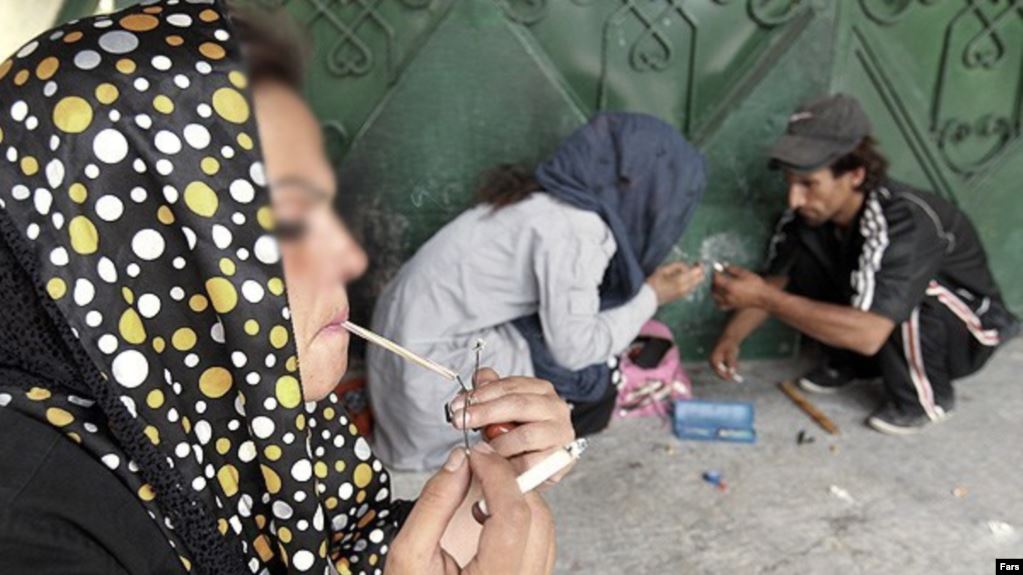
An Iranian lawmaker quoted the Head of Iran’s Drug Control Headquarters Eskandar Momeni, saying that more than two tons of narcotic drugs are used in Iran each day.
Hassan Noroozi, Spokesperson of Parliament’s Judiciary Commission, pointed to the presence of Momeni in this commission and quoted him as saying: “2080kg of narcotic drugs are used in Iran every day.”
According to the statistics by the United Nations Office on Drugs and Crime, Iran is one of the biggest highways for drug trafficking, along with Central Asia, Pakistan, and India. In addition, Iran discovers and seizes 90% of global opium, playing a main role in this regard.
Iran’s Drug Control Headquarters has announced that 70% of convicts in prisons are charged with drug-related crimes. According to the Headquarters, more than 2.8 million people constantly use narcotic drugs, and according to statistics in 2017, roughly 5.4% of Iranian people between the ages of 5 to 64 are addicted. 156,000 women were announced to be addicts. More than 80% of drug abuse is found among workers.
According to statistics of the World Health Organization, the rate of mortality because of substance abuse in Iran is more than 53 people for each one million people, which is the highest in the region – even Afghanistan itself.
In Iran, 67% of drug users use heroin and opium. According to reports by the World Health Organization, 70% of those who go to addiction treatment centers in Iran are addicted to these drugs. In the first three months of this year, more 52,356 people were arrested in Iran on drug-related charges.
Radio Farda – July 15
Franco-Iranian academic is arrested in Iran
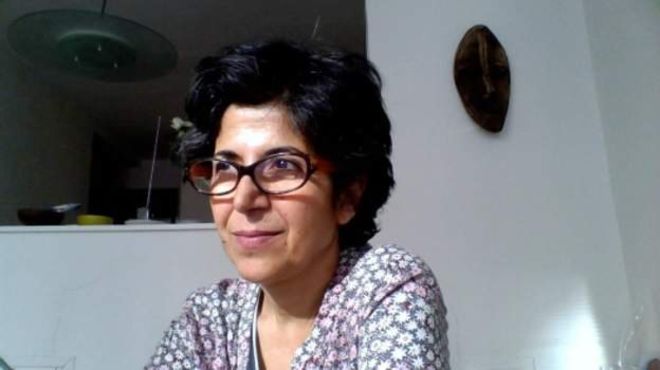
The Spokesperson for Hassan Rouhani’s administration confirmed that a Franco-Iranian academic named Fariba Adelkhah had been taken into custody in Iran. Ali Rabiei, however, said he had no idea who arrested Adelkhah or on what grounds she was arrested for.
This French-Iranian dual national is a researcher who works at the Sciences Po research university in Paris. IRGC agents took her into custody more than a month ago while she was visiting Iran.
The Iranian judiciary spokesperson confirmed arresting Fariba Adelkhah but didn’t give any information in this regard, because of the nature of the case.
Iran doesn’t recognize dual nationals, and in general, doesn’t allow foreign consulates to have access to detainees with dual nationality.
The French President Emmanuel Macron expressed concern over the detention of Adelkhah, asking Hassan Rouhani to clarify this matter. He added that he has not received any convincing explanation to justify the detention of this French citizen.
Scholars at Risk Network too issued a statement about Fariba Adelkhah, expressing concerns over her detention in Evin Prison. The Network criticized Iran for the detention, who had been conducting academic research in Iran.
Fariba Adelkhah’s research – as an anthropologist- mostly focuses on women and social issues in Iran and Afghanistan.
She has also delivered lectures in Iran on economy and politics. Adelkhah’s major book, entitled Being Modern in Iran, centers around changes in Iran after the 1979 Revolution.
The detention of Fariba Adelkhah is in line with Iran confronting dual national like Nazanin Zaghari, Homa Hoodfar, Siamak Nemazi, and Gholam Reza Shahin, who have all been imprisoned on charges such as espionage and attempting to overthrowing the establishment.
BBC Persian
Euro news
